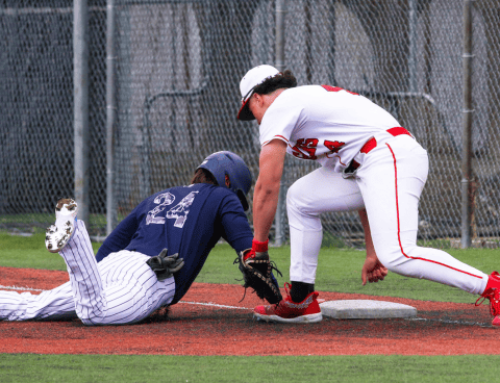Camping Tools
Attending a college camp is a great way to market yourself to coaches. But remember, it’s a two-way street. Camps give college coaches an opportunity to market themselves to you, too.
According to Tom Holliday, associate baseball coach and head recruiting coordinator at North Carolina State, it’s a system that helps you find a school that fits, but it also potentially eliminates mistakes in the selection process.
“Some guys can really recruit, but they can’t coach,” Holliday says. “If the kids don’t go to a camp or don’t have some type of contact with the coach, then they never find that out.”
The consequences of making a bad decision ultimately fall on the athlete, who is left with the option of toughing it out with the program, quitting the team or transferring to another school. Leaving one program for another causes all sorts of problems for the athlete, who may be forced to sit out for a year as a result.
Holliday’s advice: Attend the camps, and use them as the final straw in making your decision.
“When a kid gets it down to five schools, he should try to go to five camps—one at each school he’s considering,” he says. “Go there and explore the people that will be coaching you.”
For example, if you’re a pitcher, go to camp with the intention of working with and learning more about the team’s pitching coach.
“The camps give us an opportunity to get a feel for what [the athlete] is like and what their demeanor is like,” says Virginia Tech head softball coach, Scot Thomas. “You can actually tell in the camps if you have a kid who is lazy. On the other hand, you may have a kid that increases your excitement, and you will continue to recruit the kid.”
Again, though, it’s a two-way street.
For coaches at baseball powerhouse Florida State, marketing themselves through their camps has become a strong selling point.
“One thing we sell if we can get a recruit on campus is the chance to sit and talk with Coach [Mike] Martin,” says Jamey Shouppe, FSU’s associate baseball coach and recruiting coordinator. “We feel like that’s a tremendous sell, because he’s one of the premier coaches in college baseball. If you’ve got one of the winningest coaches in college baseball history telling you he wants you to play in his program, that means a lot to that young man and his family.”
Check out the Recruiting Channel at STACK TV.
RECOMMENDED FOR YOU
MOST POPULAR
Camping Tools
Attending a college camp is a great way to market yourself to coaches. But remember, it’s a two-way street. Camps give college coaches an opportunity to market themselves to you, too.
According to Tom Holliday, associate baseball coach and head recruiting coordinator at North Carolina State, it’s a system that helps you find a school that fits, but it also potentially eliminates mistakes in the selection process.
“Some guys can really recruit, but they can’t coach,” Holliday says. “If the kids don’t go to a camp or don’t have some type of contact with the coach, then they never find that out.”
The consequences of making a bad decision ultimately fall on the athlete, who is left with the option of toughing it out with the program, quitting the team or transferring to another school. Leaving one program for another causes all sorts of problems for the athlete, who may be forced to sit out for a year as a result.
Holliday’s advice: Attend the camps, and use them as the final straw in making your decision.
“When a kid gets it down to five schools, he should try to go to five camps—one at each school he’s considering,” he says. “Go there and explore the people that will be coaching you.”
For example, if you’re a pitcher, go to camp with the intention of working with and learning more about the team’s pitching coach.
“The camps give us an opportunity to get a feel for what [the athlete] is like and what their demeanor is like,” says Virginia Tech head softball coach, Scot Thomas. “You can actually tell in the camps if you have a kid who is lazy. On the other hand, you may have a kid that increases your excitement, and you will continue to recruit the kid.”
Again, though, it’s a two-way street.
For coaches at baseball powerhouse Florida State, marketing themselves through their camps has become a strong selling point.
“One thing we sell if we can get a recruit on campus is the chance to sit and talk with Coach [Mike] Martin,” says Jamey Shouppe, FSU’s associate baseball coach and recruiting coordinator. “We feel like that’s a tremendous sell, because he’s one of the premier coaches in college baseball. If you’ve got one of the winningest coaches in college baseball history telling you he wants you to play in his program, that means a lot to that young man and his family.”
Check out the Recruiting Channel at STACK TV.
RECOMMENDED FOR YOU
Create A Free Recruiting Profile Today!
CaptainU helps athletes & parents not only be proactive but also to manage and take control of their entire recruiting journey.












